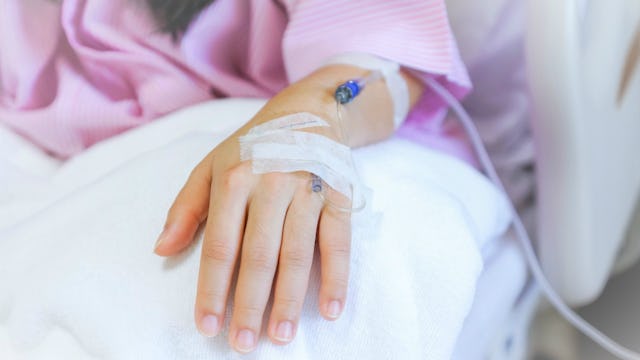Rehoming My Adopted Daughter Was Not An Option

I was completely broken a few years ago when I went to see a counselor. I had been through hard times before but nothing that compared to the depression I was drowning in. My then 5-year-old daughter had just been diagnosed with PCDH19, a rare and severe form of epilepsy that has no cure and can be fatal. I was falling apart trying to come to grips with what this diagnosis meant for her and our family. At my third appointment, the counselor asked me if I had considered “just re-adopting her out.” He reasoned that the majority of my stress was related to Alyssa and her issues, so if I sent her to another family, my depression would lift. I never sat on that man’s couch again.
That counselor was referring to a controversial practice known as rehoming, by which parents sometimes walk away from the children they have adopted. This tends to happen when families were not prepared for, or even made aware of, severe psychological problems that can result from previous abuse, or they were unable to obtain the services that their children needed to safely function in their families. To make matters worse, rehoming tends to be done with no government or agency oversight and often with devastating consequences for the children.
I’m sure that the recommendation was well-intentioned, but it was insulting to me as a mother for someone to suggest that I abandon one of my children to ease my own suffering. It was also a suggestion that was only offered because some people fail to accept that family is forever, regardless of blood relations. In my heart, there is no difference between the children whom we adopted and the one I gave birth to.
For years before Alyssa came to me, I would sneak into our empty nursery and pray for my future little girl. I bought books about my feminist heroes to read to the daughter I knew would someday walk in their footsteps. I dreamed of the amazing, strong woman she would become. I was her mother long before I laid eyes on her.
When Alyssa arrived, she was broken inside. She screamed constantly. She hit, bit and kicked me. She spit in my face when she was mad. The first time I took her to therapy, my tiny little girl walked in and flipped off her counselor. She was never easy, but she was mine.
When she started having seizures, I felt a terror that is only known by a mother watching her child flirt with death. I sat beside Alyssa’s hospital bed for nights on end, listening to the machines and praying that my child would come back to me. I didn’t lose sleep because it was my obligation as her foster parent; I stood guard over my baby because I believe that when a child is in the hospital they need their mom by their side and that was me. As the situation deteriorated, our caseworker thought we might want to bow out. That was our chance to walk away, but I had been the only mom in Alyssa’s life for a year and half at that point. My husband and I officially adopted Alyssa, and her younger brother, a few months later with no idea what the future might hold.
What my former therapist did not understand is that adoption (for our family) is unconditionally forever. Adopted kids may be extremely difficult. Sometimes they challenge us in ways we never dreamed and our lives are fundamentally changed in order to care for them, but that means that our families need to be helped not dissolved. When adopted families are not assumed to be permanent, the state can simply look the other way as children are passed between homes instead of providing the services that children from hard places require.
When rehoming is an option, workers who face adoption quotas can push through placements that are doomed from the start. When families like mine are viewed as flexible arrangements, then therapists, teachers and well-meaning friends see no problem suggesting that we return our children to the state like someone might return a misbehaving puppy to the shelter. But, my children are not disposable. I would never send my biological son away because parenting him is difficult. My adopted children are no different. They are all mine forever, and it is an insult to insinuate otherwise.
Several months after the adoption was finalized, we received Alyssa’s genetic testing results and the diagnosis. While I was still reeling from learning the prognosis her form of epilepsy carries, someone asked me if I regretted our choice to adopt her. Even with the world crashing around me, I said no. No matter what challenges or successes lie before us, she is my daughter.
Every morning when I wake Alyssa up, I pause at her door and pray that she’s still breathing and the seizures didn’t win while I slept. That hurts still. It probably always will, but I can’t justify disposing of my child because it is so difficult to live with the fear of losing her. While I don’t know where this road will lead us, I know I’m on it till the end.